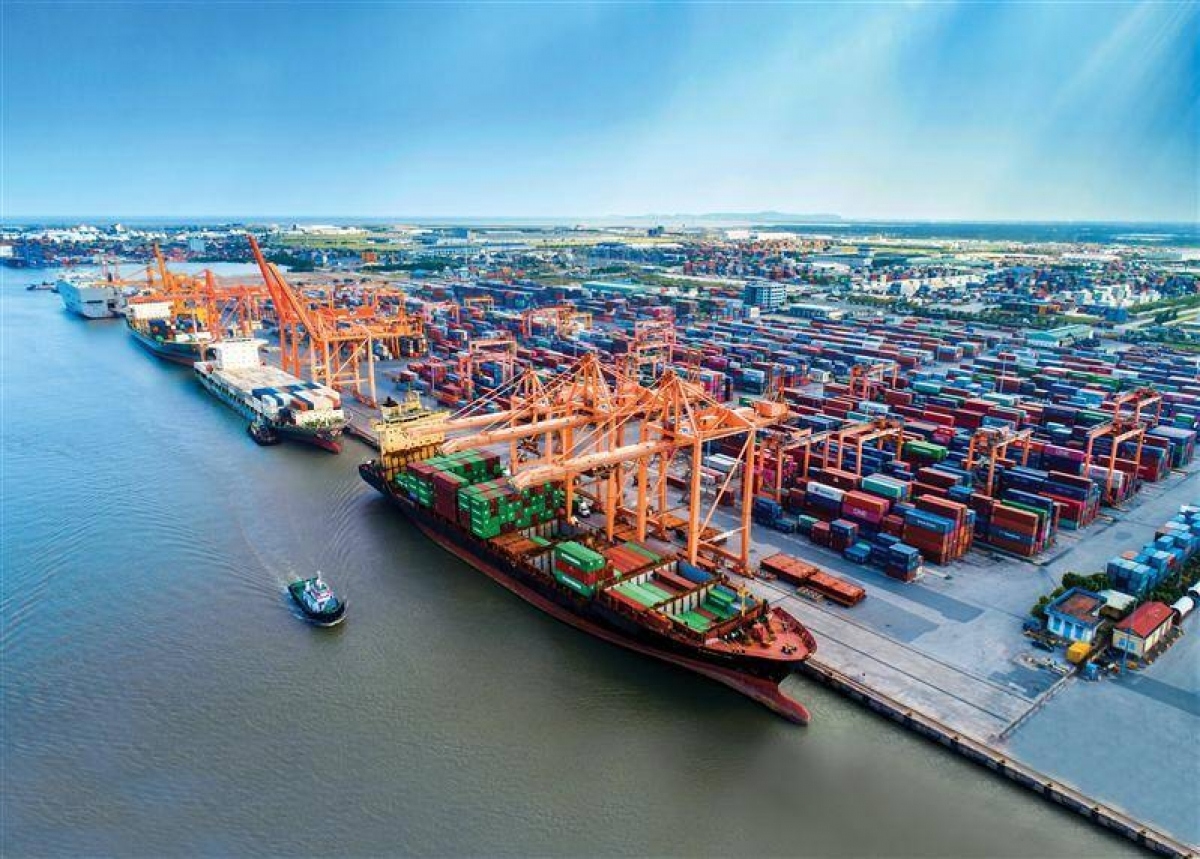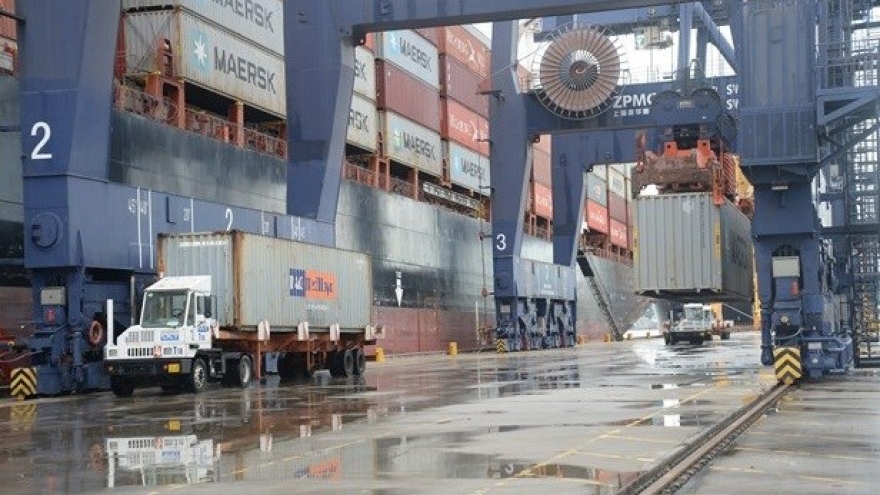US$3.96 billion trade surplus for Vietnam over eight months
VOV.VN - Vietnam recorded a trade surplus of US$3.96 billion over the first eight months of the year, with the total import and export turnover of goods rising by 15.5% year on year to US$497.64 billion, according to figures given by the General Statistics Office (GSO).
Of the overall trade value, exports increased by 17.3% to US$250.8 billion, while imports rose 13.6% to US$246,84 billion, reported the GSO on August 29.
The domestic economic sector raked in US$66.14 billion from exports, up 18.4%, duly accounting for 26.4% of total export turnover, while the FDI sector fetched US$184.66 billion in turnover, representing a rise of 17% and making up 73.6% of the total figure.
There are 30 commodities with export turnover exceeding US$1 billion each, accounting for 91.8% of total export turnover. Among them are six commodities with export turnover of more than US$10 billion each, generating 63.4% of the total.
With regard to the structure of export groups, fuels and minerals accounted for 1.4%, a rise of 0.3% year on year, while processed industrial products made up 89%, equal to the same period from last year.
Moreover, agricultural and forestry products accounted for 6.6%, a decline of 0.7%, while aquatic products made up 3%, an increase of 0.4%.
Meanwhile, the eight-month import turnover of goods stood at an estimated US$246.84 billion, up 13.6%, of which the domestic economic sector and FDI sector grossed US$85.58 billion and US$161.26 billion, respectively.
The United States remains Vietnam’s largest export market with an estimated turnover of US$77.7 billion, while China makes up the largest import market of Vietnamese goods with an estimated turnover of US$82.1 billion.
Throughout the reviewed period Vietnam posted a trade surplus of US$21.6 billion with the EU, up 46.4% year on year, but slipped into a trade deficit of US$47.8 billion, US$27.4 billion, US$9 billion, and US$320 million with China, the Republic of Korea, and ASEAN, respectively.
At present, the Ministry of Industry and Trade (MoIT) is focused on implementing new-generation free trade agreement (FTAs) as part of efforts to assist businesses in gaining greater insights into the commitments of FTAs in order to effectively utilise tariff incentives.
The MoIT has also organised trade promotion programmes in a bid to help enterprises export agricultural products, simplify administrative procedures, support domestic enterprises to reduce their reliance on the FDI sector in production, and boost export activities.



